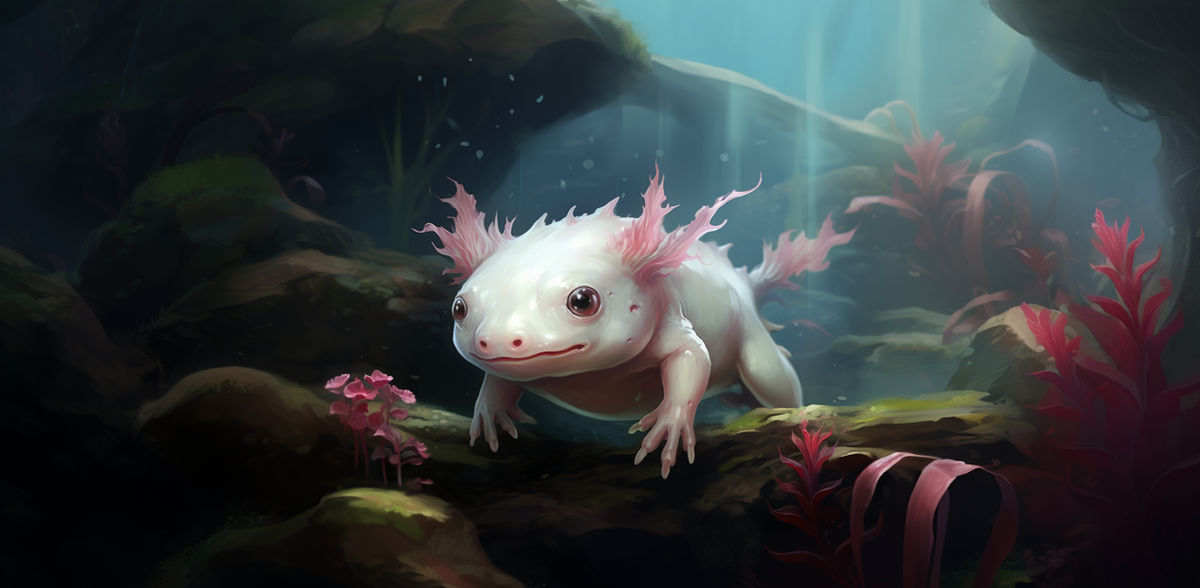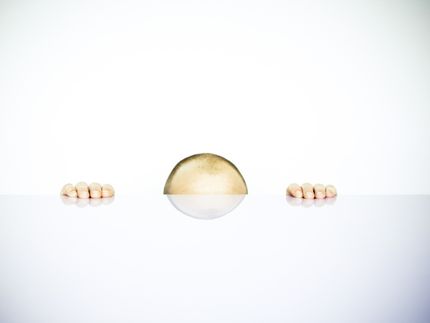Why do we age and how can we stop it?
“People who engage in unhealthy habits age faster”
The aging process begins as early as young adulthood. What causes this process and what factors speed it up? Can regeneration research on the axolotl contribute to slowing down the aging process – or stop it altogether? Where does our longing for “eternal youth” come from? These are the questions researchers from various disciplines at TU Dresden are working on.
“From a biological perspective, aging makes little sense,” says Professor Antje Bergmann. People are at their healthiest up until they reach fertility, so they can pass their genes on to their offspring. “Everything that comes after that is aging.” Aging is embedded into our genetic makeup, explains Prof. Bergmann, who heads the Department of General Medicine at Carl Gustav Carus University Hospital Dresden. Unhealthy behaviors such as smoking or not protecting your skin from the sun speed up the aging process. Although genetic predisposition certainly has an influence on aging, in short: “People who engage in unhealthy habits age faster.”
The Center for Regenerative Therapies Dresden (CRTD) is researching how the aging process can be delayed. “We want to age healthily and slow down the signs of degeneration in organs, or even prevent it completely,” explains Professor Michael Sieweke. His research group examines macrophages, which could play a decisive role in cancer treatment in the future. After cardiovascular diseases, tumors are the second most common cause of death in Germany. Macrophages are immune cells that are able to remove harmful substances such as bacteria, cell debris, and even cancer cells. The Alexander von Humboldt Professor’s goal is to use macrophages as a medicinal treatment in the future. But there is still a long road ahead before this can happen, Sieweke points out.
Regeneration research is also conducted by other groups at CRTD. Dr. Maxima Yun works with creatures that age very differently to people. “Axolotls have got extraordinary capabilities,” explains Yun. These Mexican amphibians can regenerate a huge repertoire of structures and organs in their bodies. They can reproduce parts of their brains, eyes or spine if they are lost or damaged. Axolotls are even able to transform certain cells back to their original state. “We are exploring how these capabilities can be transferred to humans,” Yun continues. The factors that contribute to cell regeneration have already been identified. There is reason to hope that people will also one day be able to benefit from the capabilities of axolotls.
Until then, many people turn to others means that allegedly slow down the aging process – Anti-aging creams, botox or cosmetic surgery. “Aging and dying are both associated with the process of suffering,” says Professor Markus Tiedemann, explaining why people long for eternal youth. The fear of losing autonomy is another reason why people find aging so difficult. When it comes to the question of extending life spans, the philosopher sees, above all, an issue of injustice: future generations would be deprived of resources in this way.
“Life ends, but we can celebrate that it happened!” may be a way to come to terms with the finiteness of life, according to Markus Tiedemann. We should also not neglect the fact that as people grow older, they assume the vital role of passing on their experiences to future generations, adds GP Antje Bergmann. Findings from regeneration studies have also shown that exercise and getting eight hours of sleep regularly slow down the aging process, Maxima Yun said.
Other news from the department science

Get the life science industry in your inbox
By submitting this form you agree that LUMITOS AG will send you the newsletter(s) selected above by email. Your data will not be passed on to third parties. Your data will be stored and processed in accordance with our data protection regulations. LUMITOS may contact you by email for the purpose of advertising or market and opinion surveys. You can revoke your consent at any time without giving reasons to LUMITOS AG, Ernst-Augustin-Str. 2, 12489 Berlin, Germany or by e-mail at revoke@lumitos.com with effect for the future. In addition, each email contains a link to unsubscribe from the corresponding newsletter.






















































